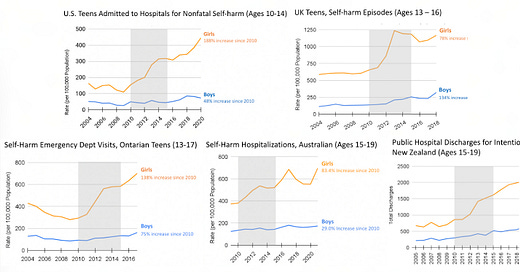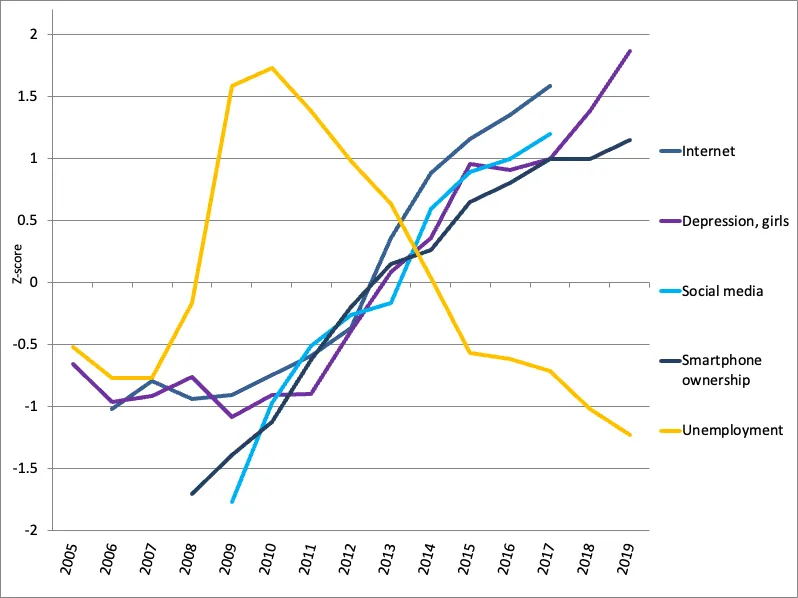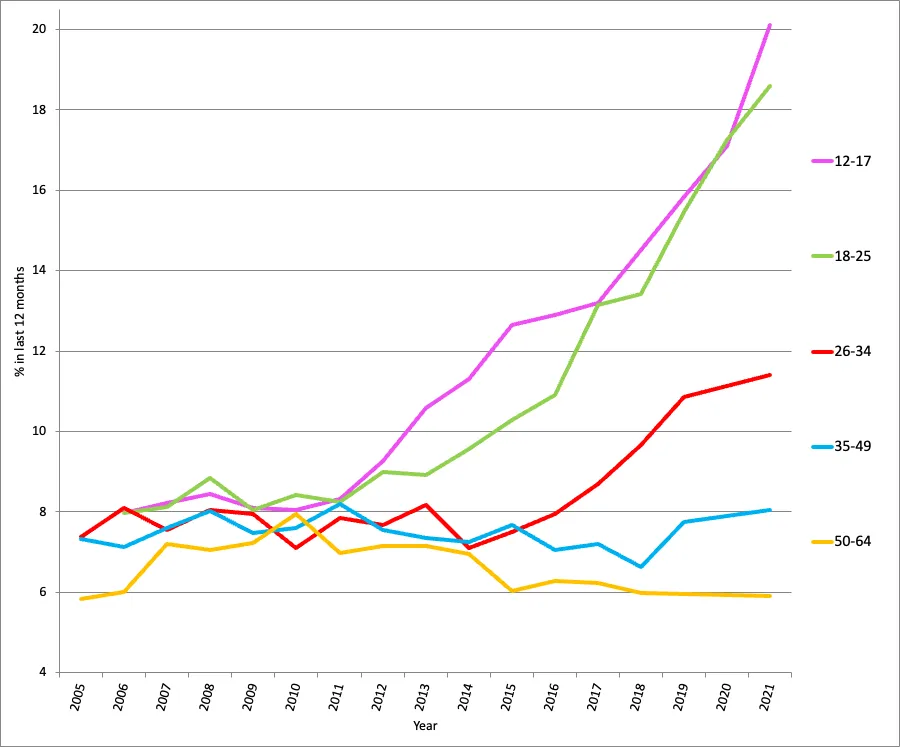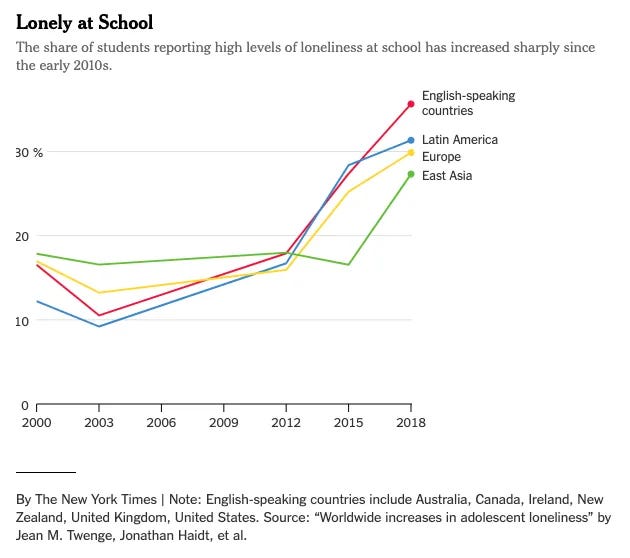A Global Problem
The pervasive nature of the mental health crisis on a global scale serves as compelling evidence that smartphones and social media are, indeed, the agents behind it.
It has been a little while since I have written about the status of the mental health epidemic, but it is a topic that I continue to monitor. In recent months, I have focused my attention more on potential solutions — the tools we need to improve well-being in our environment of “too much.” But there have been some critical articles published in the last month that I believe are worth the attention of this audience. (And I should take a moment to thank the engaged audience for this substack and for reading and sharing this work!)
So here are the pieces that I think are worthy of our attention:
Suicide Rates Are Up for Gen Z Across the Anglosphere, Especially for Girls by Zach Rausch. Rausch examines the international youth mental health crisis, focusing on the spike in anxiety, depression, and self-harm among adolescent girls in the Anglosphere and Nordic nations since the early 2010s. He attributes this trend to the transition from a play-based childhood to a phone-based childhood during the "Great Rewiring of Childhood" from 2010 to 2015.
“Since 2010, rates of self-harm episodes have increased for adolescents in the Anglosphere countries, especially for girls. For data on all sources, and larger versions of the graphs, see Rausch and Haidt (2023). Before 2010, there was not much happening. By 2015, self-harm episodes were at record-high levels in all five countries. (Data for Canada is limited to Ontario province, which contains nearly 40% of the population of Canada.)” From After Babel, Rasuch and Haidt.
Yes, it’s the phones (and social media) by Jean Twenge. In this piece, Twenge argues the idea that the rise in teen depression, loneliness, and suicide can be solely attributed to technology, particularly smartphones and social media. She puts this theory through a stress test —- exploring and refuting 13 alternative explanations, such as increased willingness to seek help, the impact of the COVID-19 pandemic, economic factors, school shootings, climate change, and decreased independence among teens.
Technology adoption, teen depression, and national unemployment, 2006-2019. Sources: National Survey of Drug Use and Health, Monitoring the Future, Pew Research Center, Bureau of Labor Statistics. See also Figure 6.39 in Generations. (via Jean Twenge Generation Tech)
Percent of U.S. adolescents and adults with major depression in the last year, 2005-2021. Source: National Survey of Drug Use and Health. (via Jean Twenge Generation Tech)
(This one was published in June but is worth the read) The Case for Phone-Free Schools by Jon Haidt. Haidt covers the detrimental impact of smartphones on students' mental health and academic performance, presents evidence linking phone addiction to declining mental health and educational outcomes, and offers suggestions for schools that want to go phone-free.
Keep looking for connection,
In Podcast News
Our theme on Finitude is out! We are so grateful to our guest — New York Times bestselling author Oliver Burkeman, for joining us on the show. He was a delight.
Finitude means understanding that things end, and Oliver has written an excellent book about the topic called 4000 Weeks: Time Management for Mortals. I have written about Oliver and his work in a previous edition of Missives, which you can check out here.
Enjoy the show!
And Finally, Recommendations
As always, if you have recommendations for me — please send them my way!
What I am reading:
The Canceling of the American Mind by Greg Lukianoff and Rikki Schlott (if you are not in the mood for a whole book, here is a good article about it.)
17 Life-Learnings from 17 Years of The Marginalian by Maria Popova
Short Form War by Scott Galloway
What I am watching:
Lessons in Chemistry on Apple
What I am listening to:
Robert Sapolsky on Human Behavior and Free Will
Sam Harris on the Sin of More Equivalence and What is Christianity?
Adam Grant on Hidden Potential
If you are enjoying this newsletter, please take a minute to share it with a few friends.
Much appreciated! And thanks for reading!
Flourish
“This is the true joy in life, being used for a purpose recognized by yourself as a mighty one. Being a force of nature instead of a feverish, selfish little clod of ailments and grievances, complaining that the world will not devote itself to making you happy. I am of the opinion that my life belongs to the whole community and as long as I live, it is …
The Obstacle is the Way
As most of you already know, our podcast is out! The first two episodes of our latest theme — Collective Effervesnce — dropped today. Episode 6 features a great interview with St. Louis Post Dispatch columnist Ben Hochman and St. Louis Shakespeare Festival’s Adam Flores, who are teaming up to bring the City of St. Louis a FREE Shakespearean play about t…









